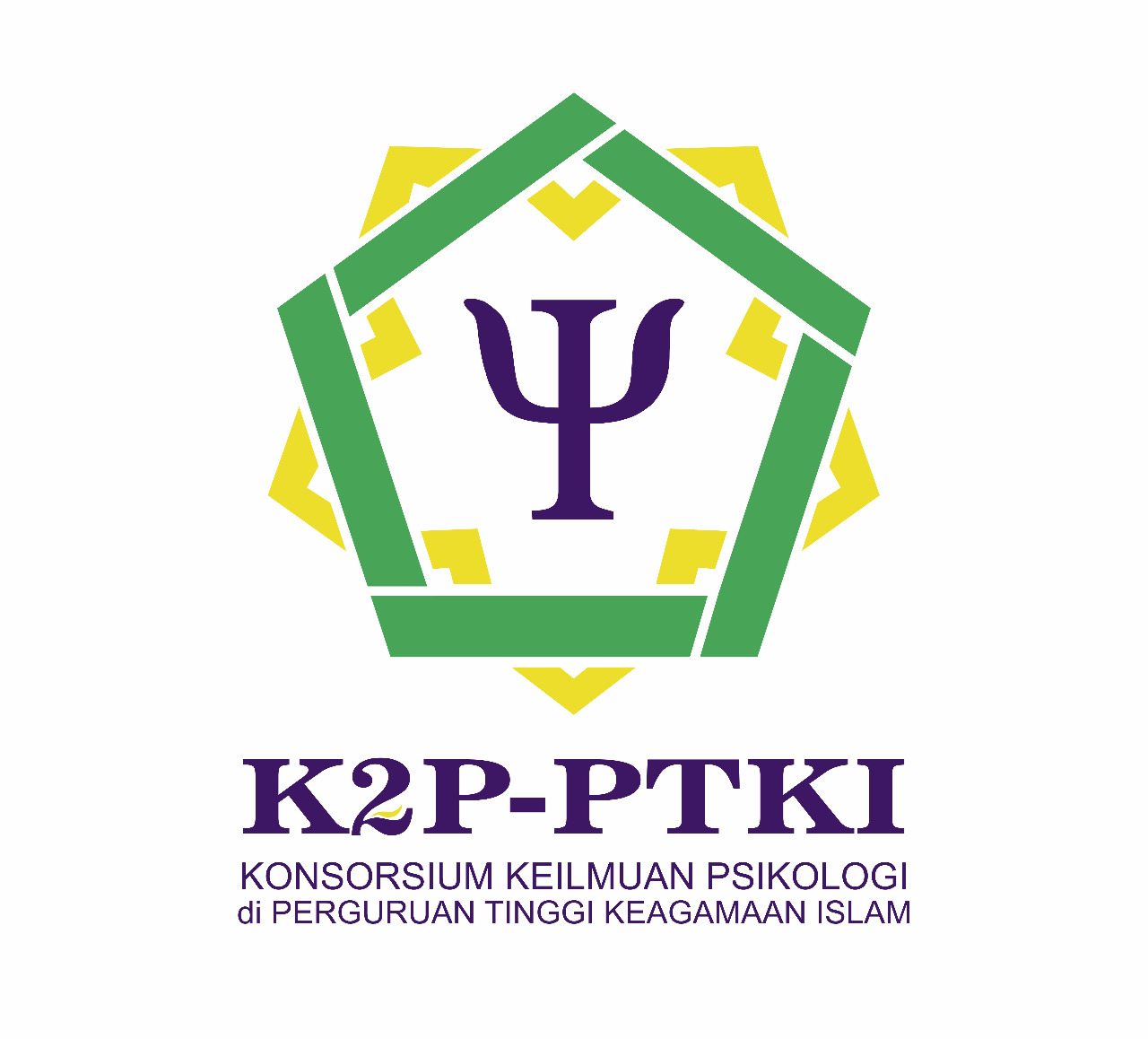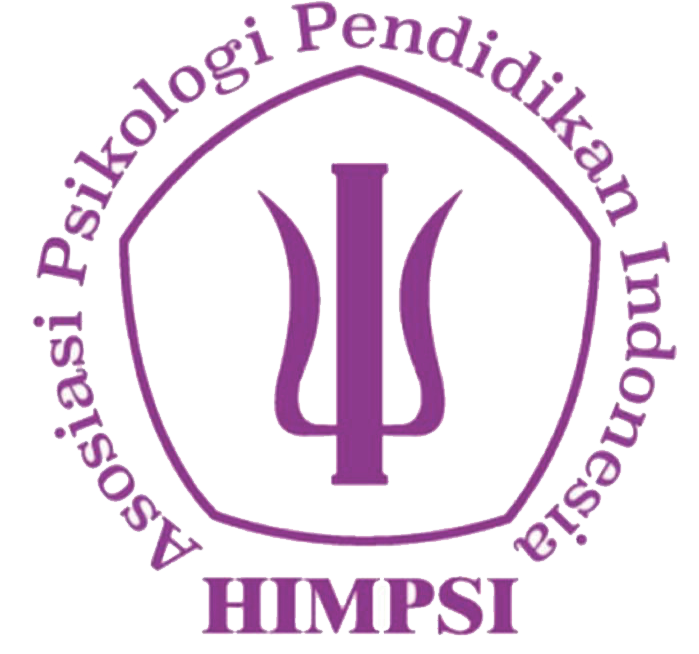The Role of Spiritual well-being and Self-efficacy on Kindergarten Teachers Burnout/ Peran Spiritual well-being dan Self-efficacy terhadap Burnout pada Guru TK
Abstract
Abstract: High work demands and obligations to fulfill tasks which are spending time, thought and energy make teachers have burnout. This research aims to study the effect of spiritual well-being and self-efficacy on burnout among kindergarten teachers. Having correlational quantitative research design, this research involved 94 teachers who teach in kindergartens. Quota technique sampling was used to have the sample. There are three instruments used, namely the Maslach Burnout Inventory (MBI) scale, Spiritual well-being questionnaire (SWBQ) scale, and self-efficacy scale. The result showed that spiritual well-being and self-efficacy have an effect on burnout among kindergarten teachers. Partially spiritual well-being has a positive effect on burnout and self-efficacy has a negative effect. The contribution of the two variables shows that other variables can be used for further research.
Keywords: Burnout, Spiritual well-being, Self-efficacy
Abstrak: Tuntutan kerja yang tinggi dan kewajiban memenuhi tugas yang memakan waktu, pikiran dan tenaga membuat guru dapat mengalami burnout. Penelitian ini bertujuan untuk mengetahui pengaruh spiritual well-being dan self-efficacy terhadap burnout pada guru TK. Rancangan penelitian menggunakan penelitian kuantitatif korelasional dengan melibatkan 94 guru yang mengajar di TK. Teknik quota sampling digunakan untuk mengambil sample penelitian. Ada tiga instrumen yang digunakan yaitu skala Maslach Burnout Inventery (MBI), skala Spiritual Well-Being Questionnaire (SWBQ) dan skala self-efficacy. Hasil analisis data menggunakan regresi ganda menunjukkan bahwa spiritual well-being dan self-efficacy berpengaruh terhadap terbentuknya burnout pada guru TK. Secara parsial spiritual well-being berpengaruh positif terhadap burnout dan self-efficacy berpengaruh secara negative. Kontribusi kedua variabel menunjukkan ada variabel lain yang bisa digunakan untuk penelitian selanjutnya.
Kata Kunci: burnout, spiritual well-being, self-efficacy
Keywords
Full Text:
PDF (Bahasa Indonesia)References
Anisyah, & Miftahudin. (2015). Pengaruh work-family conflict, self-efficacy dan faktor demografik terhadap burnout. Journal Of, ology,03(01), 27–41.
Arikunto, S. (2006). Metode Penelitian. Bina Aksara.
Azwar, S. (2012). Penyusunan Skala Psikologi. Pustaka Pelajar.
Bandura, A. (2006). Self-efficacy In. In V. S. Ramachaudran (Ed.), Encyclopedia of human behavior: Vol. vil.4 (pp. 77–8881). Academi Press.
Chirico, F. (2016). Job stress models for predicting burnout syndrome: A review. Annali Dell’Iinstitudo Superiore Di Sanita, 52(3), 443–456.
Darmaningtyas. (2015). Pendidikan yang memiskinkan (edisi revisi. Intrans publisihing.
Dita, & Muryantinah. (2014). Hubungan tingkat self-eficacy guru dengan tingkat burnout pada guru sekolah inklusi di Surabaya. Jurnal Psikologi, 03(01), 59–67.
Firdaus, U. (2010). Mewaspadai gejala burnout pada guru.
Fisher, J. (2010). Development and application of a spiritual well-being questionnaire called shalom. Religion, 01(1), 105–121.
Fisher, J. (2016). Selecting the best version of SHALOM to asses Spiritual well-being. Religions, 1–12.
Glesberg, H., & Dkk, N. (2007). prevalence of the burnout syndrome among Brazilian Medika Oncologist. Rev. Assoc. Med. Bras, 53(1), 85–90.
Hardiman P., &Simmonds J. G. (2012). Spiritual well-being, burnout and trauma in counsellor and psychotherapists. Journal of Mental Health, Religion and Culture, 16(1), 1044–1055.
Holland, J. M., & Neimeyer, R. A. (2005). Reducing the risk of burnout in end-of-life care settings: the role of daily spiritual experiences and training. Palliative and Supportive Care, 3, 173–181.
Khamisa, N., Peltzer, K., Ilic, D., & Oldenburg, B. (2016). Effect of personal and work stress on burnout, job satisfaction and general health of hospital nurses in south Afrika. Health SA Gesondheid, 22, 252–258.
Koren, E. . (2009). Nurses’ work environment and spirituality : A descriptive study. International Journal of Caring Sciences, 02(03), 118–125.
Kutcher, E. J., Bragger, J. D., Rodriguez-Srednocki, O., & Masco, J. L. (2010). The Role of Religiosity in Stress, Job Attitude, and Organizational Behavior. Journal of Behaviours Ethic, 95(1), 319–337.
Leither, M. P., & Maslach, C. (2005). A Mediation Model of Job Burnout.
Lestari, Rini, & Purwati. (2002). Hubungan antara Religiusitas dengan Tingkah Laku Coping. Jurnal Ilmiah Berkala Psikologi Indigeneus, 6(1), 52–58.
Loeb, C. (2016). Self-efficacy at work. Disertasi diterbitkan. Malardalen university Press.
Maharani, D. R. (2011). Hubungan antara self-efficacy dengan burnout paada guru sekolah dasar negeri “x. In di kota bogor. Skripsi fakultas psikologi universitas Gunadarma.
Maidisanti, R. (2018). Hubungan antara self-efficacy dan burnout pada anggota polisis satnarkoba polresta jambi. Jurnal Psikologi, 03(01), 14–23.
Mariyanti, H. (2014). Hubungan antara self-efficacy dengan burnout pada pengajar taman kanak-kanak sekolah “X” di Jakarta. Jurnal Psikologi, 12(02), 54–60.
Maslach, C., Schaufeli, W, & Leiter, M. . (2001). Job burnout. annual review of psychology. Job Burnout. Annual Review of Psychology, 52(2), 397–422.
Moma, L. (2014). Self-efficacy matematik pada siswa SMP, masharafa : jurnal pendidikan matematika (pp. 3 2 ,85–94).
Moran, M. T., & Hoy, A. W. (2001). Teacher Efficacy : Capturing and Elusive Construct. Teaching and Teacher Education, 17(1), 783–805.
Purba, J., & dkk. (2007). Pengaruh dukungan sosial terhadap burnout pada guru. Jurnal Psikologi, 1(1), 77–87.
Salavano, P., & Schaufely. (2002). Self-efficacy and burnout among information technology workers : an extension of the job demand-control model. Jurnal of Work and Organizational Psychology, 11(01), 1–25.
Underwood, L. . (2006). Ordinary Spiritual Experience : Qualitative Interpretive Guidelines, and Population Distribution for The Daily Spiritual Experience Scale. Archive for The Psychology of Religion, 28, 181–218.
Velasco, Gonzalea, & Rioux. (2013). The spiritual well being of elderly people: A study of a french sample. Journal of Religion and Health, 53(4), 1123–1137.
Young, Cashwell, & Shcherbakova. (2000). The moderating relationship of spirituality on negative life events and psychological adjustment. Counselling and Values, 45(1), 49–57.
Zuya, H., Kwalat, S., & Attah, B. (2016). Pre-service teacher mathematics self-efficacy and mathematics teaching self-efficacy pre-service teachers ‘ mathematics self-efficacy and mathematics. Journal of Education and Practice, 07(14), 93–98.
DOI: https://doi.org/10.18860/psikoislamika.v18i1.11562

This work is licensed under a Creative Commons Attribution-NonCommercial-ShareAlike 4.0 International License.

------------------------------------------------------------------------------------------

pSIKOISLAMIKA by http://ejournal.uin-malang.ac.id/index.php/psiko is licensed under a Creative Commons Attribution-NonCommercial-ShareAlike 4.0 International License.


.jpg)


.jpg)





